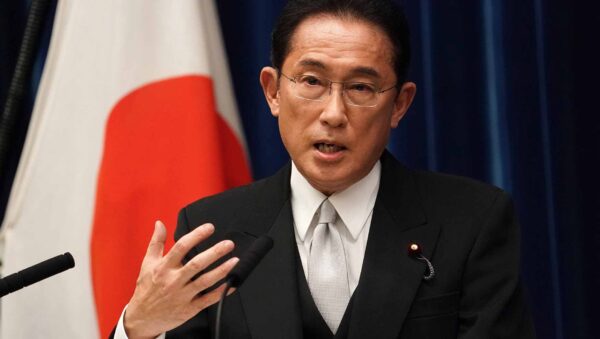Japan’s position on Gaza differs from that of other G7 countries

TOKYO, December 1. /TASS/. The Japanese government’s policy on the Gaza crisis does not fully coincide with the stance of the United States and other Group of Seven members, as Tokyo has to take into account the opinion of Arab oil supplier countries to a greater extent, Aiko Nikishida, Japan’s leading expert on the Middle East, has told TASS.
Japan has become the only country in the G7 whose signature is absent from the joint statement of other G7 members adopted on October 22 in support of Israel and its right to “defend itself from terrorism,” said Professor Nikishida, of Keio University, an author of a number of works on the Palestinian problem.
“The main point of that document seems to have been precisely the reference to Israel’s right to self-defense,” Nikishida said. “Japan explains that it avoided to put its signature to the statement because, unlike other G7 members, none of its citizens were held hostage and it has no ethnic Jewish community. However, the real underlying reason for Tokyo’s stance is different – the oil issue, although the government never openly acknowledges this.”
“Japan as of October this year imported 96% of the oil it needs from the Arab countries. The degree of dependence is very high. It does not allow Tokyo to unequivocally take Israel’s side. On the other hand, there is such a factor as the alliance with the US. It is the basis for ensuring Japan’s security. Therefore, it is difficult for Tokyo to say something contrary to Washington’s position. This also applies to the country’s policy towards Israel and Palestine. Japan cannot take completely independent action in this direction, for example, offer itself as a mediator. As for the problems of the Middle East, the Japanese government can only adhere to the basic position of the US and at the same time try not to cause particularly strong annoyance among the Arab countries.”
Different behavior in UNSC
On November 10, Japanese Foreign Minister Yoko Kamikawa said that her country intended to help Palestine achieve economic independence. Earlier, she called the principle of “two states for two peoples” the only possible basis for a settlement of the conflict in the Middle East. At the same time, the Japanese government condemns Hamas for its actions, demands the release of all hostages and advocates a humanitarian pause in hostilities.
Tensions flared up again in the Middle East on October 7 when militants from the radical Palestinian group Hamas staged a surprise attack on Israeli territory from the Gaza Strip and took hostages. Hamas described its operation as a response to the aggressive actions of Israeli authorities against the Al-Aqsa Mosque on the Temple Mount in Jerusalem’s Old City. Israel has declared a total blockade of the Gaza Strip and carried out air strikes on the Palestinian enclave, as well as some areas of Lebanon and Syria. Clashes are also underway in the West Bank.